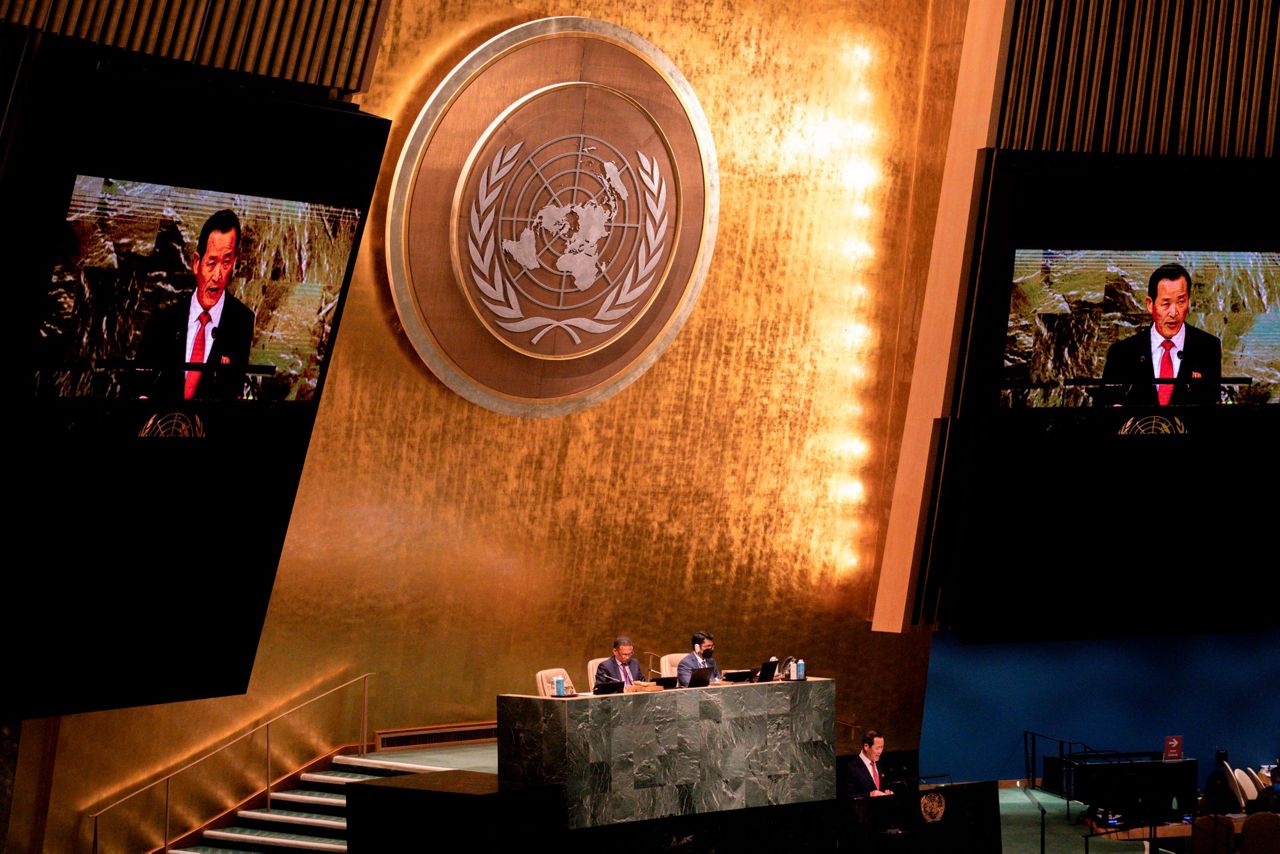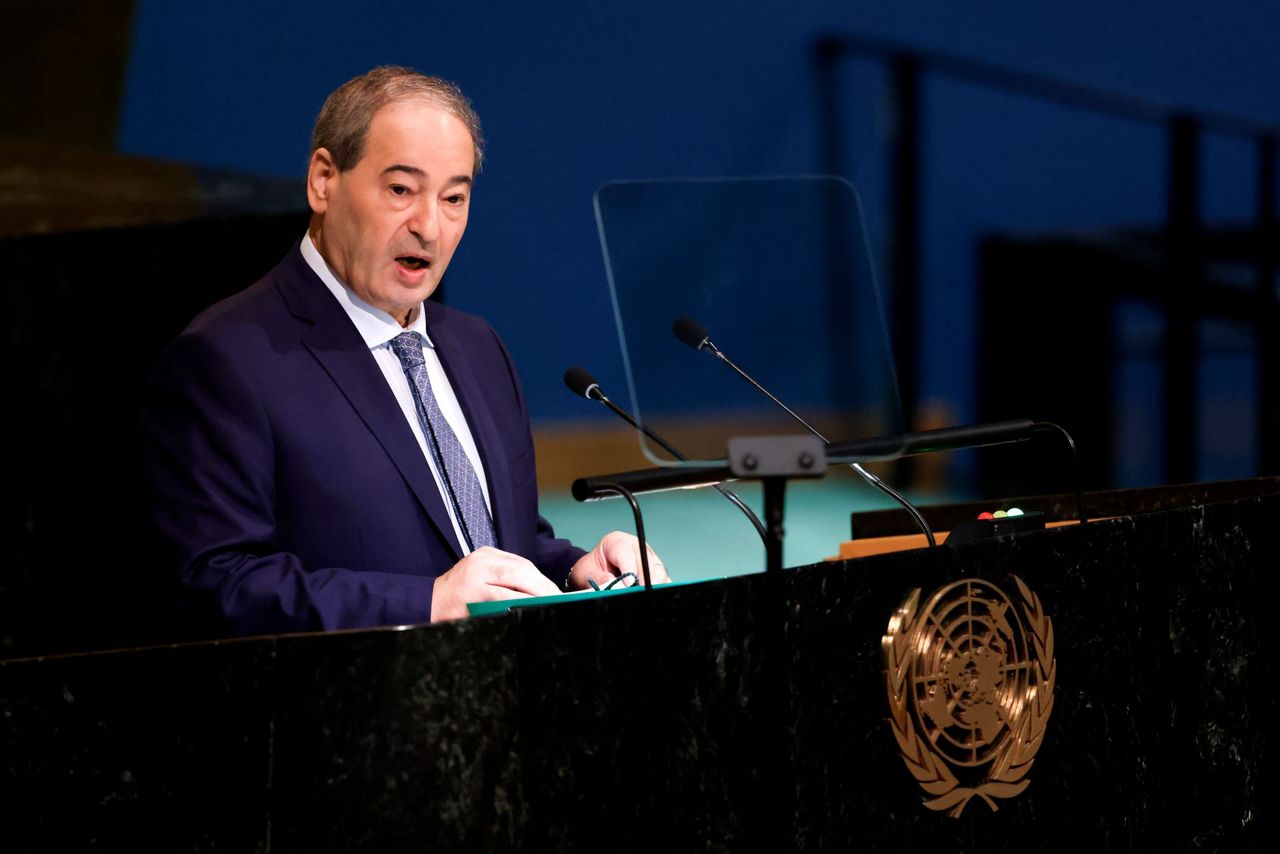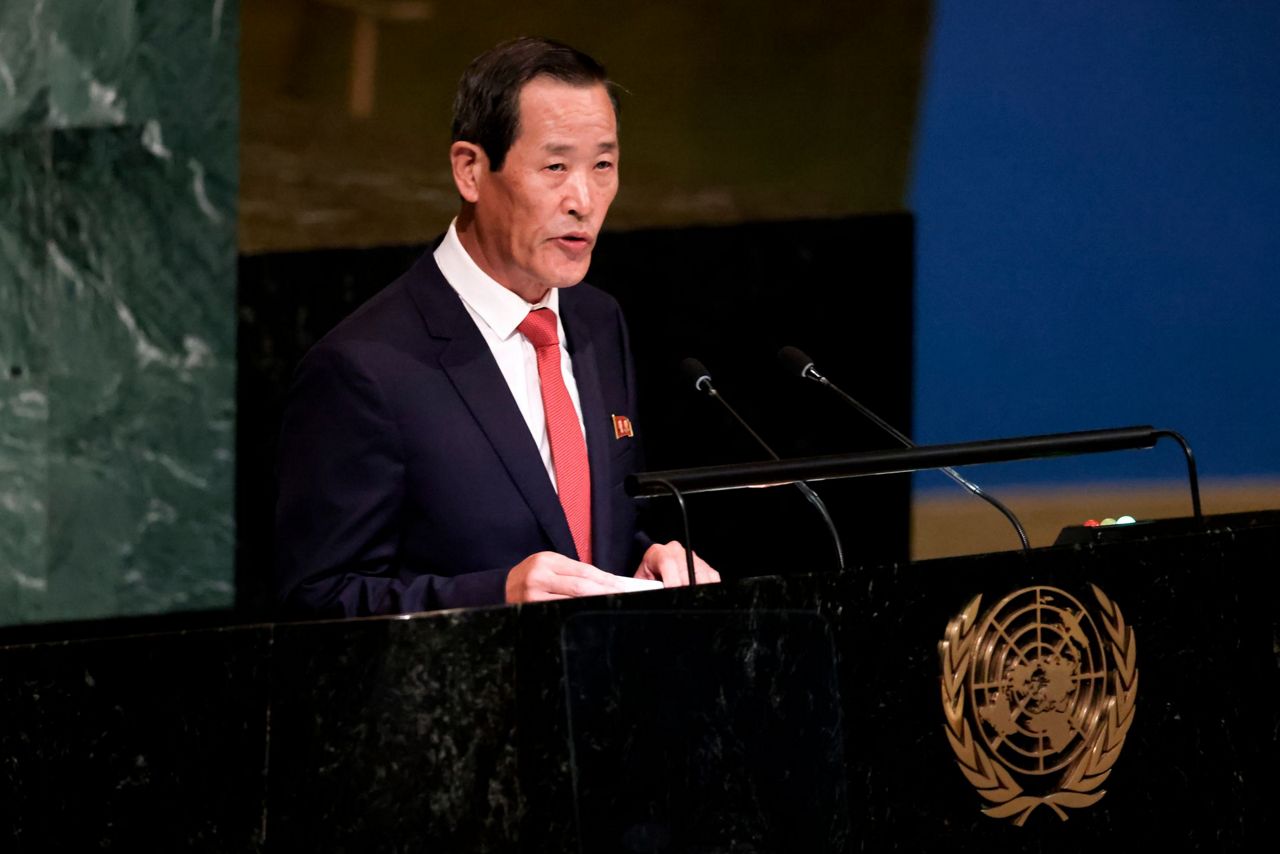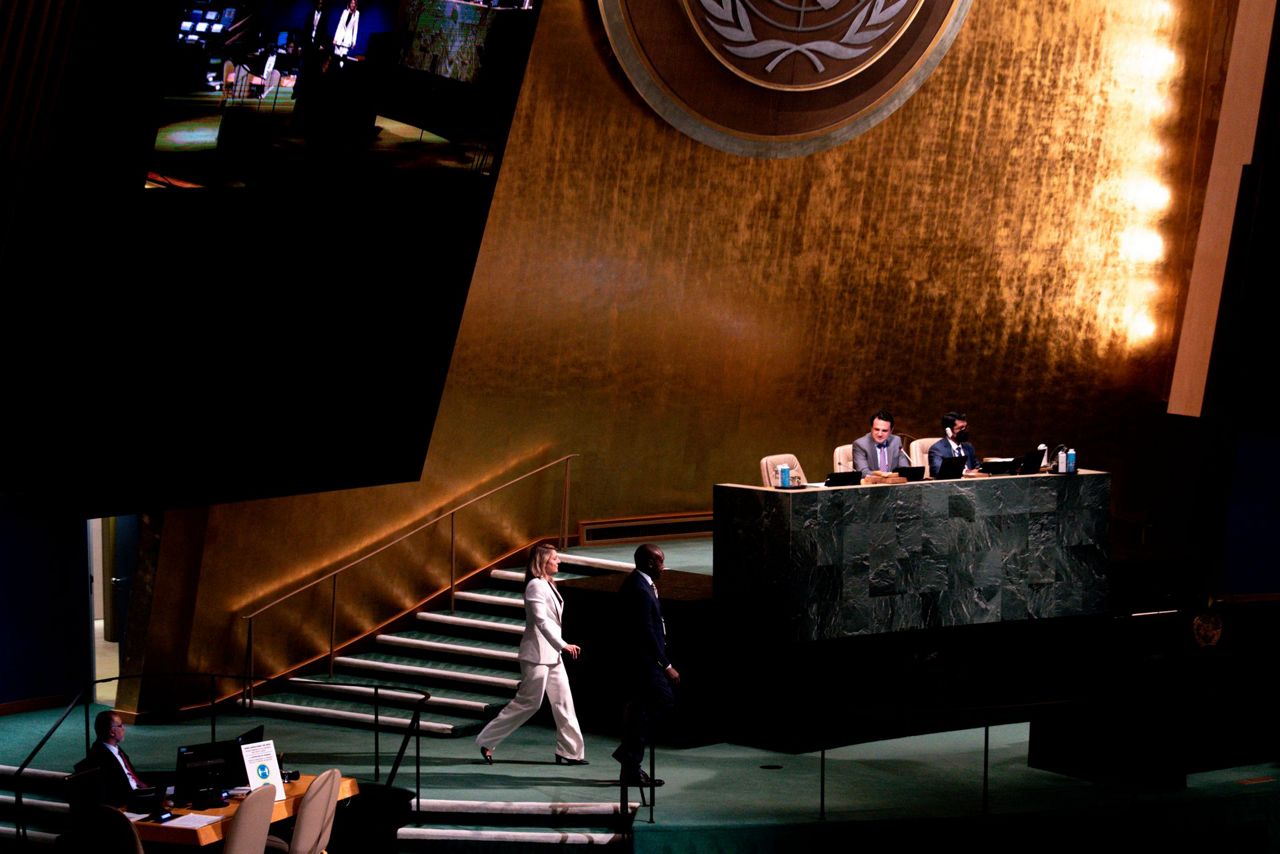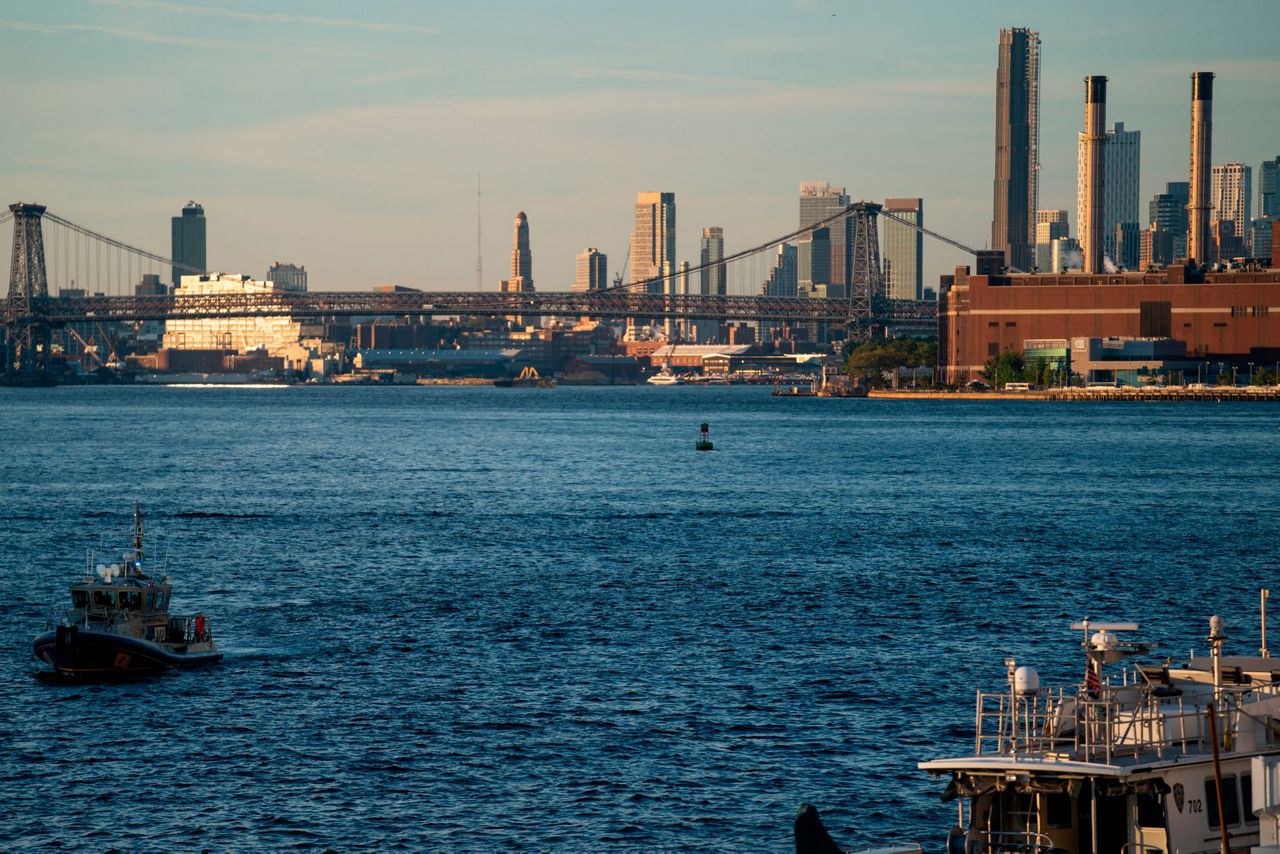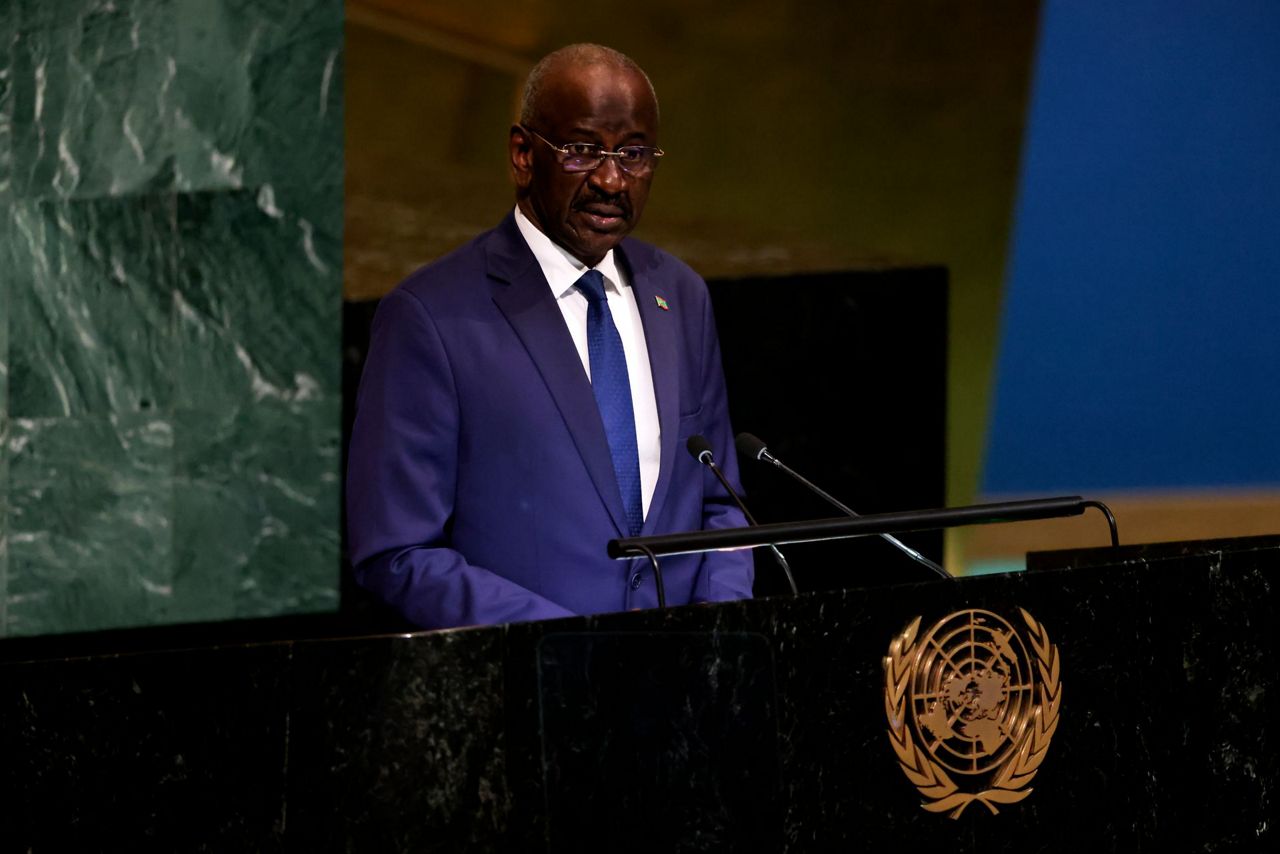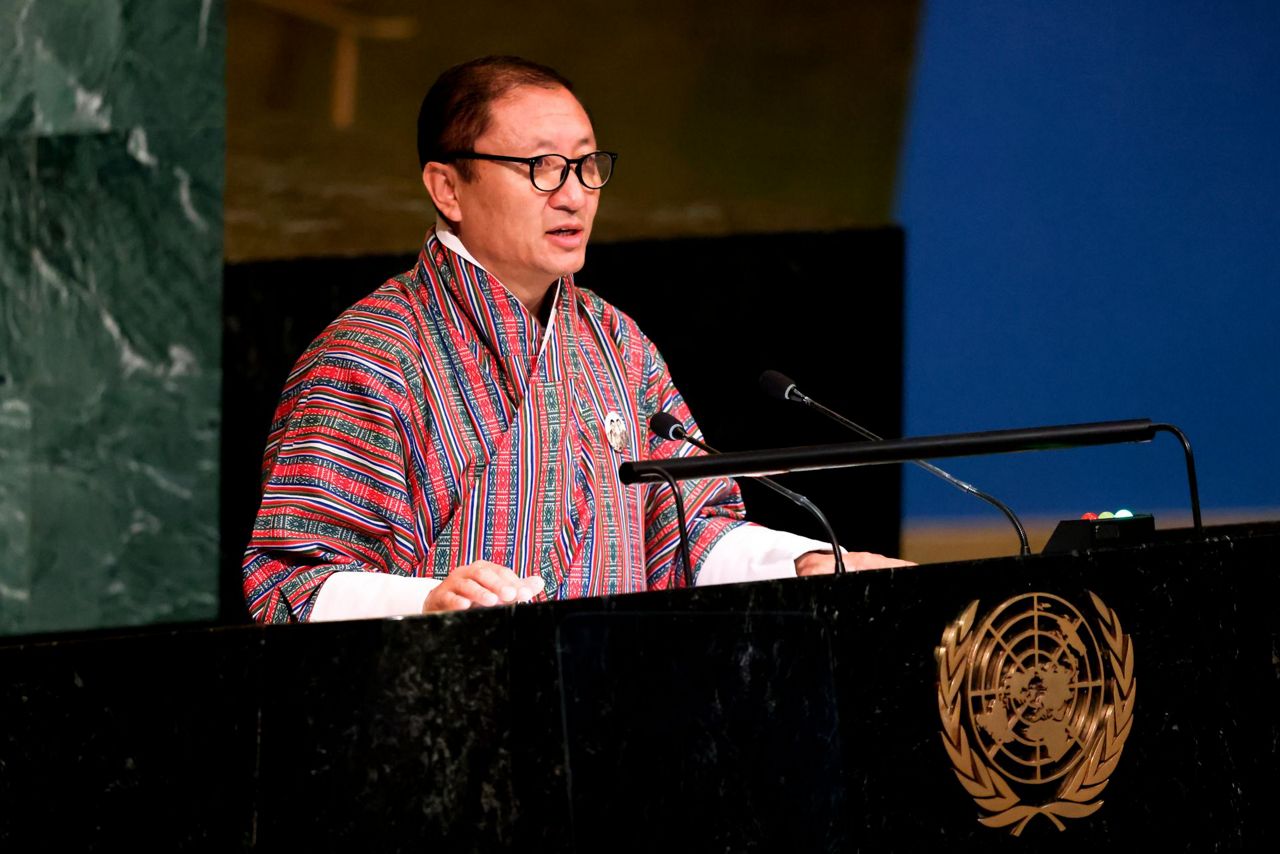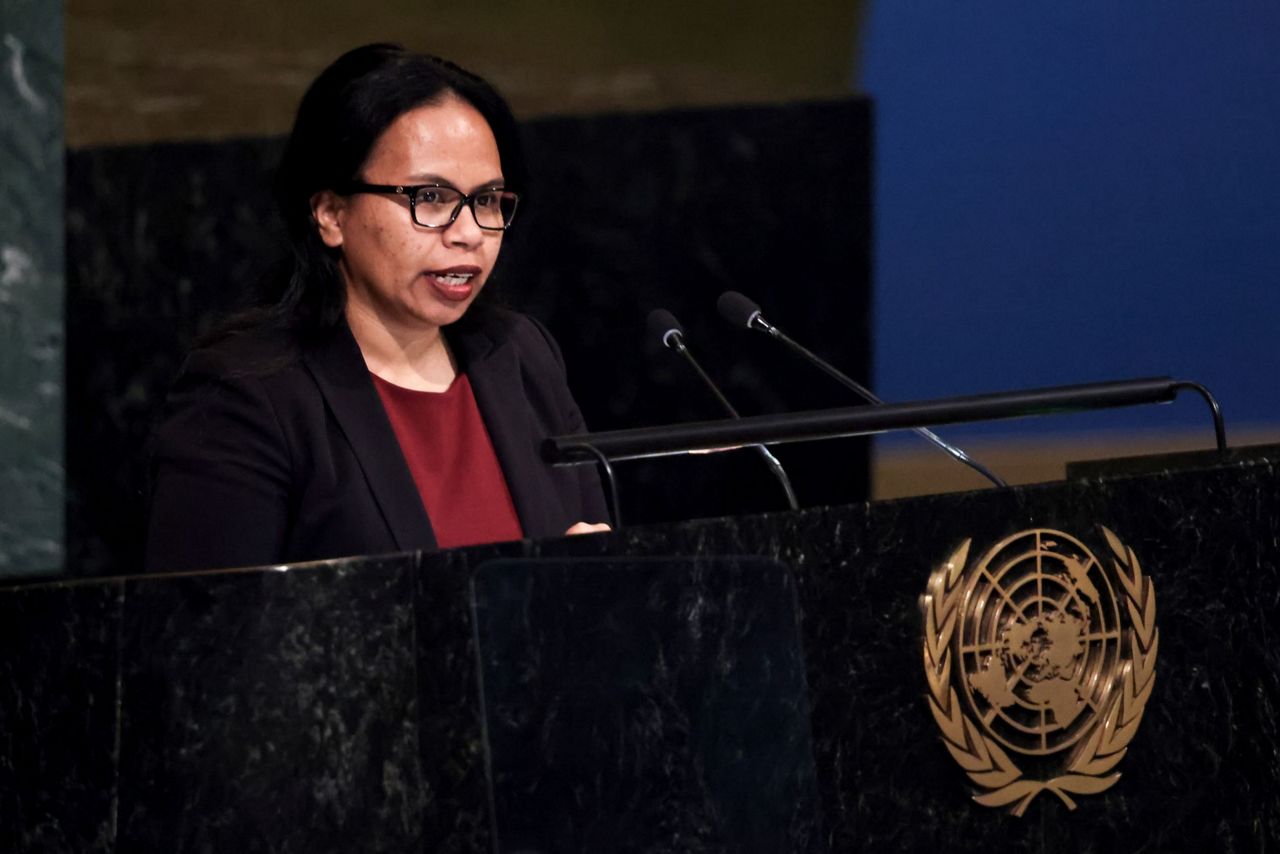UNITED NATIONS (AP) — Some of the West's fiercest critics made their cases in the closing hours of the U.N. General Assembly meeting of world leaders, as Syria and North Korea on Monday accused the United States and its allies of trying to impose their will on the world.
Syria’s top diplomat called for a U.S.-led military coalition to get out of his country, a North Korean ambassador said his nation wouldn't yield to U.N. demands to give up its nuclear weapons program, and both condemned sanctions against their countries.
If the messages weren't exactly new, they carried the extra weight of a once-a-year chance to speak from the same famous podium as the leaders of other nations, including their adversaries. U.S. President Joe Biden addressed the assembly last week, making no direct mention of Syria but briefly complaining that North Korea “continues to blatantly violate U.N. sanctions” over its nuclear activities.
North Korean U.N. Ambassador Kim Song retorted Monday that Biden “picked on us,” and Kim shrugged off his message.
“To put it clearly, we have never recognized such resolutions of the United Nations that impose pressure" because North Korea views them as U.S. aims given an international imprimatur, Kim said.
“We will not recognize them in the future, either,” he added.
He said relations were potentially “heading into a much more dangerous phase” — potentially the shakiest since World War II — because of the “high-handedness and arbitrariness of some countries" that he said were trying to overwrite the international system with “Western values.”
Syria Foreign Minister Faisal Mekdad also took aim at sanctions, which the the U.S., some other countries and the European Union have imposed on his country's government, oil industry and more. He said his country has been “economically besieged” by powers bent on getting their way and retaining their wealth.
“The war against Syria, ultimately, was an attempt by the West to maintain control over the world,” he said.
The civil war began in 2011 with anti-government protests demanding that President Bashar Assad’s government make democratic reforms, but the situation quickly escalated into fighting that has killed hundreds of thousands of people and displaced millions. Amid the chaos, the Islamic State militant group took over significant parts of Syria. In 2019, the group lost the last sliver of land its fighters controlled, but its sleeper cells are still active.
To Syria's frustration, hundreds of U.S. troops are stationed in the country's east to help the Kurdish-led Syrian Democratic Forces to fight the militants. Mekdad said the coalition’s presence contradicts international law and “should end immediately, without conditions.”
“Fighting terrorism does not happen through an illegitimate international coalition that violates Syria’s sovereignty and destroys towns and villages,” he said, arguing that battling terrorism can’t work without “coordination” with Assad’s government.
Syria also wants compensation for $107 billion in “direct and indirect” losses in its oil and gas sector during the war, Mekdad said. The American forces and the SDF currently control much of the oil fields in eastern Syria.
The U.S. didn't immediately respond to the remarks from Mekdad and Kim. They spoke on the closing day of the annual “debate” that brings presidents, monarchs, premiers and cabinet ministers to the assembly's podium.
Russia’s war in Ukraine has taken up much of the discussion this year, but the six days of speeches still formed a mosaic of global issues, national priorities, regional rivalries and don't-forgets. Monday was no exception.
Mauritanian Foreign Minister Mohamed Salem Ould Merzoug called for debt cancellation for African countries. His Canadian counterpart, Mélanie Joly, told the world's women that her country would “speak up for your rights and dignity — no government, no politician, no judge, no one, can take that away from you."
Bhutan's foreign minister, Tandi Dorji, said he overhauled his speech after getting a letter from a 7-year-old girl in his Himalayan homeland. She worried that her small community would be flooded by melting snow and glaciers in a warming world, he said, reading from the letter.
“I would request your excellency to kindly convey this small message to the world leaders and big and rich nations to help and save our tiny village from global warming,” she wrote. “I am sure if we all come together, we can not only save our tiny village but also make our Earth safe for all living beings.”
The high-profile speeches began last week with countries that sent heads of state and government. By Monday, foreign minister- and ambassador-level speakers were taking the podium, and the colossal security cordon around the United Nations headquarters had been largely dismantled.
On the final day, many speakers still spoke emphatically about how important the global organization remains in a fragmented world.
“We need more of the U.N., not less," Joly said.
As the last country to weigh in, Nauru took stock of a world that has been buffeted by the Ukraine war, the coronavirus pandemic and climate change, all at once. But diplomat Josie-Ann Dongobir closed with hope "that this year allows us to be open to the transformation we seek.”
___
Associated Press writers Bassem Mroue in Beirut and Ted Anthony at the United Nations contributed. For more AP coverage of the U.N. General Assembly, visit https://apnews.com/hub/united-nations-general-assembly
Copyright 2022 The Associated Press. All rights reserved. This material may not be published, broadcast, rewritten or redistributed without permission.



